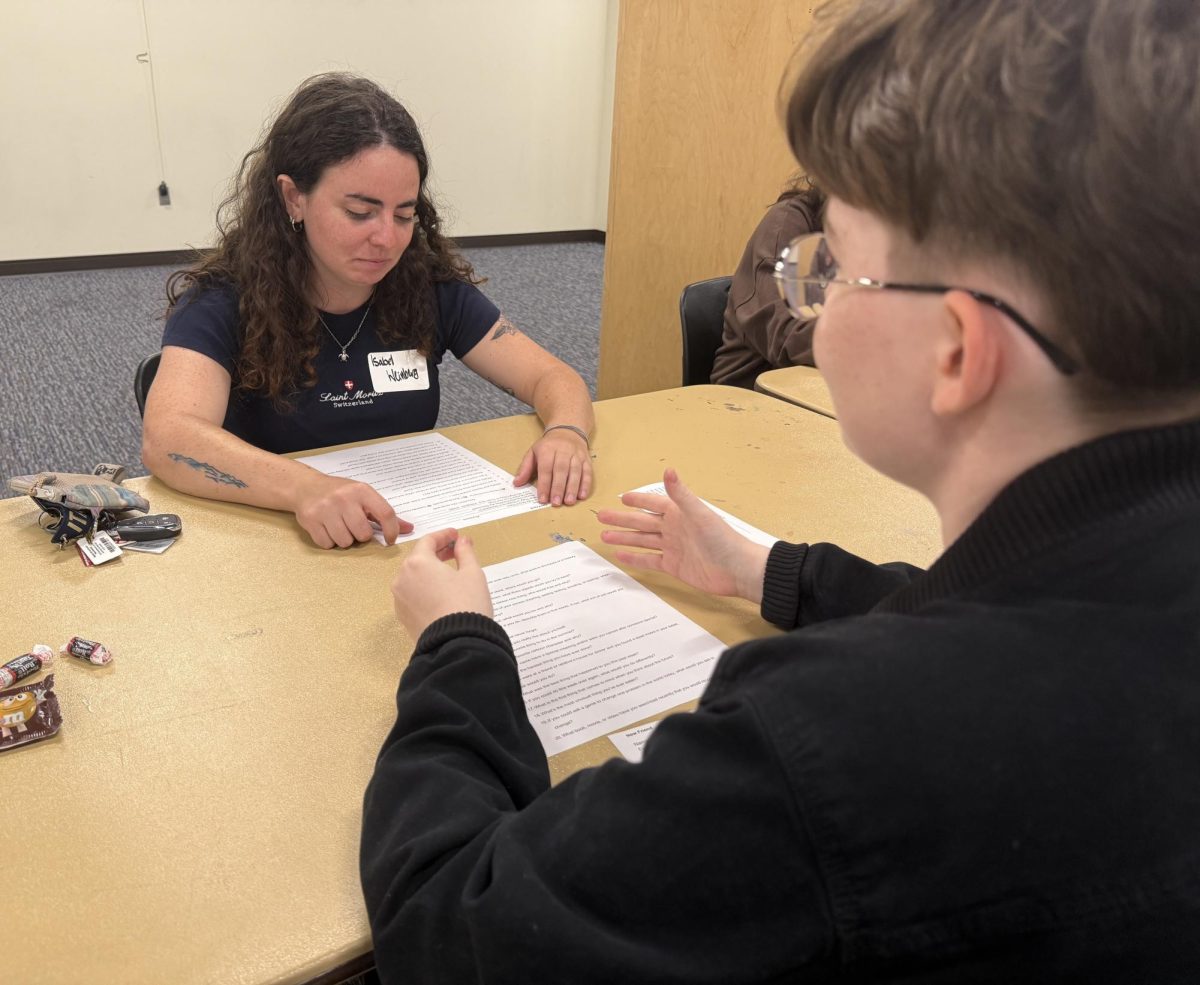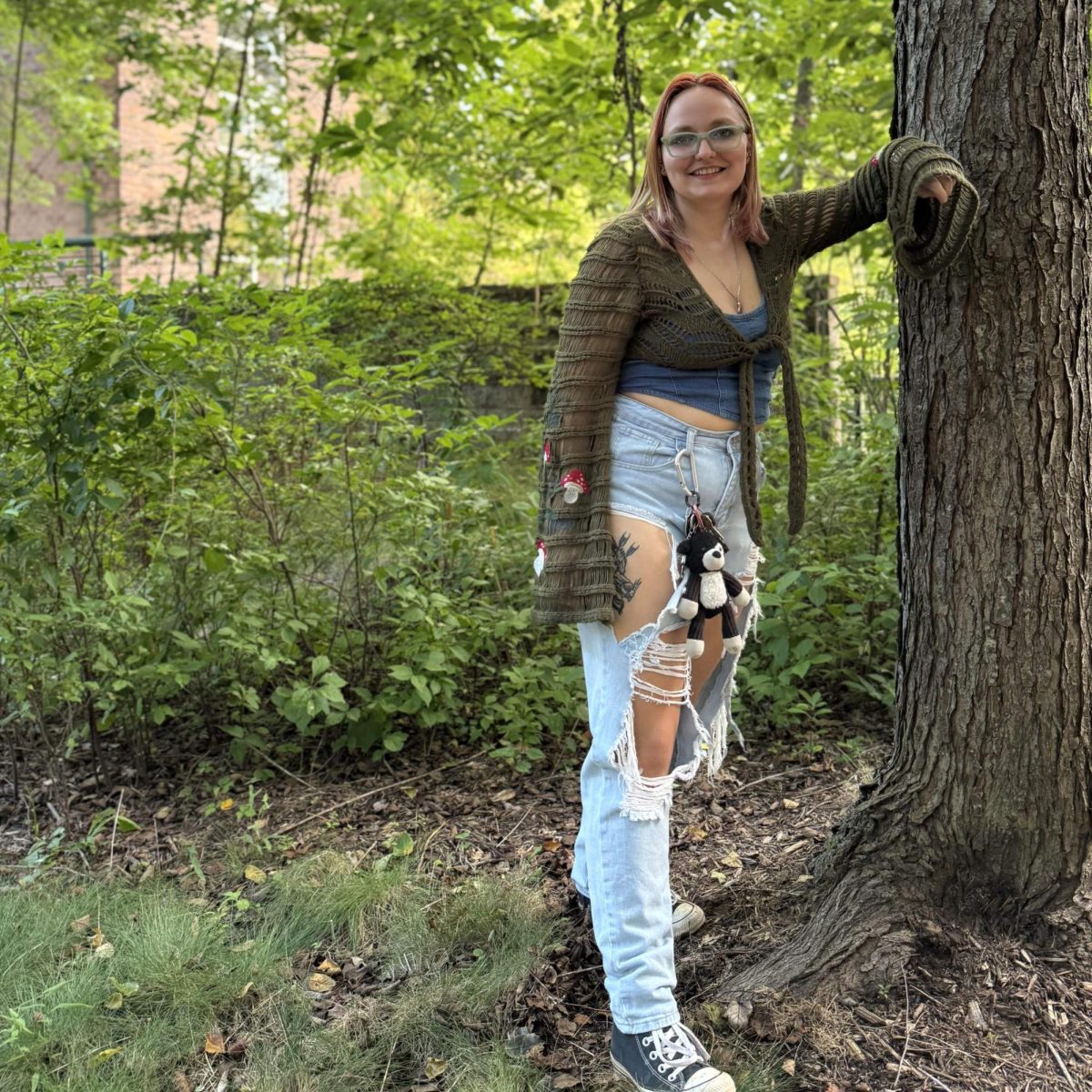Samantha Savery Elizabeth Walker
Sports Editor Distribution Manager
[email protected] [email protected]
The crowd buzzed as the lights slowly turned on, drawing everyone out of a lull after the intensity of the film. Voices carried across the theater and excitement built until John Boyega almost shyly entered the stage to a roar of the crowd in the Lucas Theater.
On Nov. 2, Savannah hosted one of Hollywood’s brightest new stars. Known fondly as “Y’allywood,” the town drew crowds for the actor’s visit promoting his newest film, Detroit, during the SCAD Savannah Film Festival Oct. 28 to Nov. 4.
“I want to begin by reading a few things you’ve said about this movie Detroit that everyone’s just seen,” said Scott Feinberg, interviewer and Hollywood Reporter awards columnist. “‘This movie is far beyond anything I’ve ever done.’”
Based on the Detroit summer riots of 1967, the film centers around the Algiers Motel incident. Rioting and civil unrest surrounded the streets and upon hearing shots fired police, National Guardsmen and state police surrounded the hotel in a joke turned horrific incident with three men dead.
“I wanted to be a part of a movie that explores the issues of race in a very factual but also a very dramatic way,” Boyega said. “I was looking for a film in a short space of time after I had to pack my schedule for two years and Detroit was just the perfect fit.”
While initially drawn to the screening by Boyega’s work in Star Wars, Cael DuBois, a freshman illustration student at SCAD, was pleasantly surprised after watching the film.
“The characters, the action, the mixture of historical footage and dramatization — it was amazing,” DuBois said. “I definitely came close to crying. I thought the ending was great and I felt a little overwhelmed at the end, when they give more information about the real events.”

Melissa Claussen, a doll and plush maker from Pooler, Georgia, said the movie was one they never wanted to watch again, just because of the events it depicts.
“I thought the movie was raw,” said Claussen, who admires Boyega’s acting and social activism. “It didn’t hold back any truth or spare any detail when it came to the violence that took place against the people of Detroit.”
At 25, Boyega’s name has already become a household staple. From larger sci-fi projects such as Star Wars: The Force Awakens and the upcoming Pacific Rim: Uprising to insightful dramas such as Imperial Dreams, Boyega has made a name for himself balancing poignant, powerful roles on different sides of the film spectrum and fans have noticed.
“He shared that he’s being very specific with his projects, so he can make sure his work aligns with his beliefs and what he wants to stand for,” DuBois said. “It’s something I don’t exactly see in popular actors as much as I’d like to.”
After watching Boyega’s first film Attack the Block, director J.J. Abrams sought out the actor from south London. Cast as the new male lead role Finn in Star Wars: The Force Awakens, Boyega has handled the spotlight and fame that follows a Star Wars role with grace and humor which flowed throughout his interview, even when discussing more serious subjects such as Kathryn Bigelow, a white woman, making a film about police brutality against black Americans.
“She was respectful and had the right team around her,” Boyega said. “I can’t lie. I was thinking the same thing, cause I was like, ‘She better have some black folk.’ She had the right people around her advising her and giving her intel and facts and I feel like if you’re put in that position to do so, you should do so.”
Throughout the interview and his acting career, Boyega stays humble, praising Bigelow for helping him with his acting by removing the feeling of the camera and creating environments that helped him and his costars tap into the emotions their real-life counterparts may have felt that long night in the Algiers Hotel.
“You don’t know where the camera is at any given time,” Boyega said, focusing in on Bigelow’s technique. “She was hiding cameras in walls and having those cinematographers in the most uncomfortable positions trying to get perfect shots and we would just live and breathe and walk as these characters.”
By transporting the actors to the time period of the film with hidden cameras and realistic costumes and sets, Boyega said he felt as if he was living during the era, especially since he knew little of the time period or incidents surrounding the film’s facts.
“I had no idea, most of us on the cast had no idea, but we felt it was widely documented, seriously controversial, one of the biggest revolutions in United States history,” Boyega said.
DuBois and Claussen also found the events that summer in Detroit were unfairly forgotten by most Americans.
“I hadn’t heard of these events beforehand but now that I’ve been made aware, I see that the incident should never have been dropped or forgotten or whatever it is that happened to it,” DuBois said. “The incidents in the movie echoed current events in such an eerie way that it’s impossible to not see.”
Claussen said the movie reminded them of the current struggles against police brutality.
“I do think it’s extremely important for all types of people to see because the voices of the oppressed are never really listened to or believed and Detroit is saying, ‘Here. This is what happened. Look at it and know that this isn’t over today,’” Claussen said. “It’s not just a historical movie. It’s still so relevant to what is going on today in America. The police still continue to brutalize black America and we need to all listen to the voices and stories around us and do something about it.”
Within the film, Boyega played the role of Melvin Dismukes, a security guard who helped ease tensions during the hotel incident. The real Dismukes was able to talk to Boyega while the actor was back home in London.
“Yeah, when I returned from New York to London, I was driving and uh, Kathryn called me and said, ‘I’ve got Melvin on the phone’ and I just pulled over. The person behind me — sorry mate,” Boyega said, causing the audience to laugh. “I don’t know. I just got on the phone and spoke to him. I just got to know him first. I couldn’t ask, ‘OK, who got killed first?’ It’s a bit sensitive. I got to know him as a person first, know his experiences, his childhood. He’s a big community man. He’s an introvert.”
Boyega said he hoped Detroit would be seen by everyone, particularly due to the modern political environment.
“We’re all being affected right now. A few years ago, we all had our own personal bubbles. We had our families, our friends and an understanding of our perspective of the system,” Boyega said. “And now, since there’s been political change, there’s been so much controversy and in our industries in our world, we’re all affected by it. It’s our mess to clean up. We all have a role to play, no matter how small.”
After the event, Boyega led an acting masterclass with SCAD performing arts students and was awarded the festival’s Vanguard award that night before a screening of Guillermo del Toro’s The Shape of Water.
According to SCAD president and founder Paula Wallace, the festival regularly draws in the most popular new films, brightest stars and crowds tuned into which movies will be the next big hits within the business, with many of the films screened going on to the Oscars.
Boyega is only one of many stars who have made their way to Savannah for the festival. Just this year, SCAD awarded Sir Patrick Stewart, Richard Gere, Salma Hayek, Aaron Sorkin and others, along with Boyega, for their contributions to the film industry.
DuBois was most impressed with Boyega’s production company, UpperRoom Entertainment Limited, established by Boyega and British talent agent Femi Oguns in January 2016.
“He told us that he’s started his own company so he can be active in his career rather than waiting for opportunities,” DuBois said. “It was really amazing hearing him be so smart about his career and so self-aware about the impact he can make.”
Named after the room in his childhood home he spent most of his time in before his big break in Star Wars: The Force Awakens, UpperRoom Entertainment Limited was birthed from Boyega’s struggle to get his foot in the industry. The company will allow Boyega to choose projects he is passionate about and have creative control over projects his company is part of throughout his career.
UpperRoom’s first project? Pacific Rim: Uprising.
“Not a bad way to start off, but a good way nonetheless,” Boyega said.
Having his own production company also means Boyega no longer has to wait to get the call telling him he got the role.
“I felt like now was the time to be proactive, and UpperRoom is significant. To come onboard as a producer for Pacific Rim — I love the franchise, I love Idris Elba — it was a great way of continuing that legacy and legendary diversity of great collaborators, so it was really cool,” Boyega said.
























